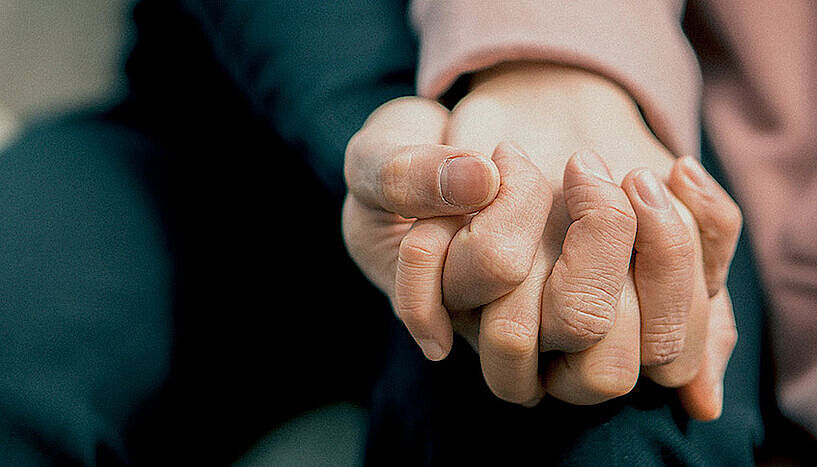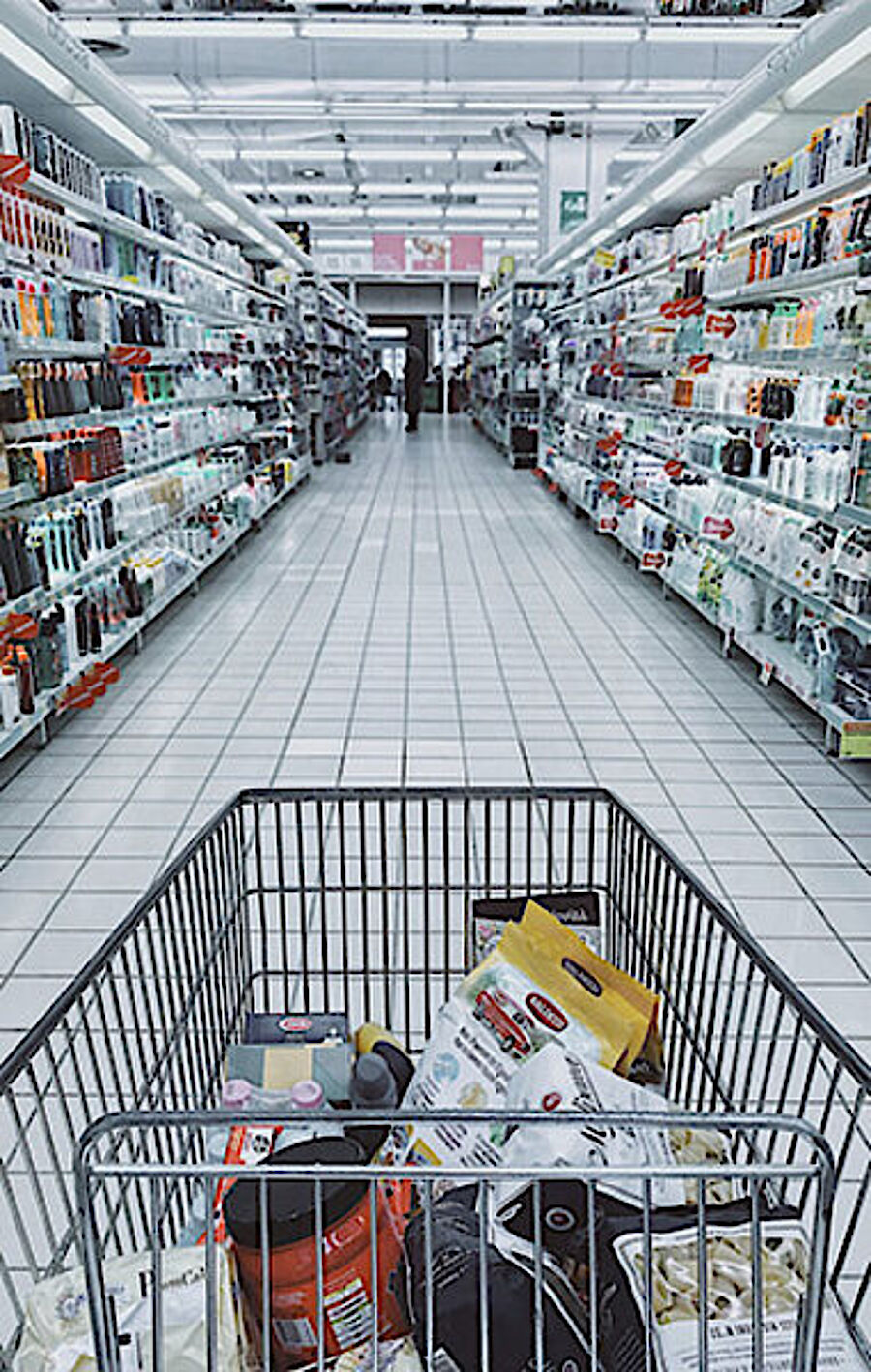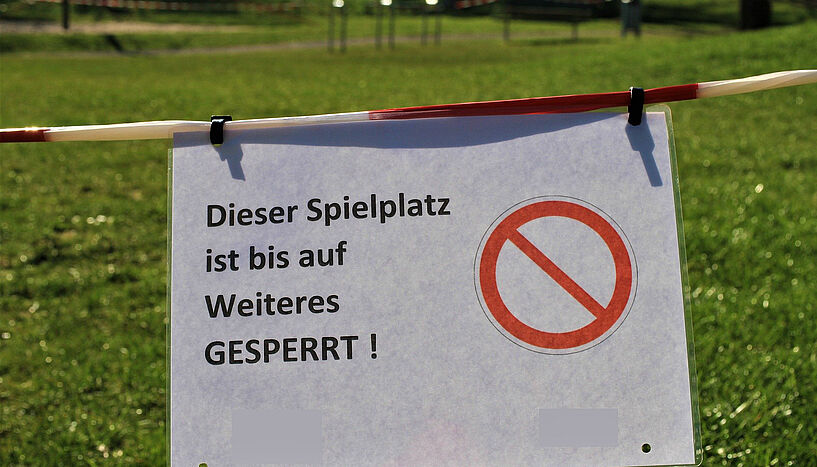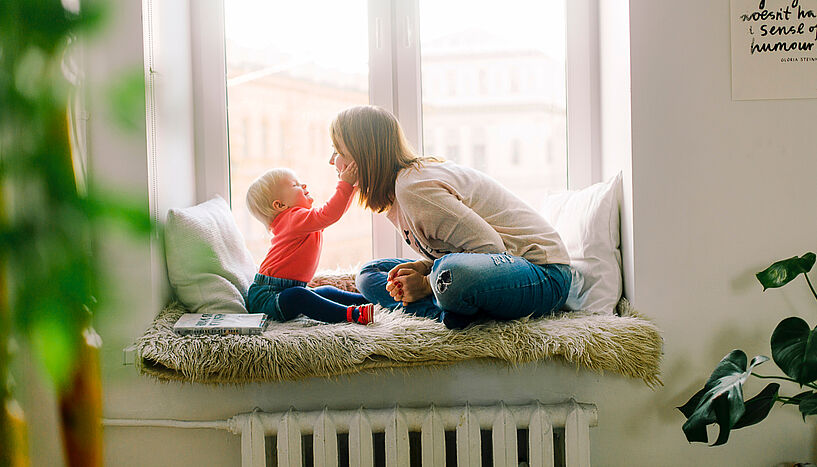"Emotions can also spread like a virus"
| 30. März 2020
People who have few social contacts experience much more stress at many levels in quarantine. Therefore, social solidarity is important in a situation of crisis. (© Pexels/Son Bom)
Why are people stockpiling even though supply chains are working? And can a crisis foster a sense of solidarity among our society? Social psychologist Arnd Florack talks about "social influence", and positive and negative effects of the Corona pandemic in our interview.
uni:view: Social distancing, restricting travelling. How do you explain the fact that most people are currently very willing to adapt their personal lifestyle – quite contrary to issues such as climate change?
Arnd Florack: This is an interesting question because we can observe a change in attitudes and behaviours. We have almost the same information as two or three weeks ago. A decisive factor is that many people are now facing a threat that is close to them psychologically and in terms of distance. Just think about the situation in Italy. In addition, experts discuss questions openly for which they have no answers yet. This kind of transparency is good. It is the basis for trust in the people responsible.
At the same time, the situation is difficult to assess. This weakens confidence, which is always an alarm signal for us. People start focusing on prevention. They pause, try to assess the situation and consider further steps. If you observe certain behaviour occurring more frequently in others, you modify yours. This creates “social influence” – your fellow human beings become a source of information. On the one hand, social influence has an impact on behaviour, including behaviour that is not useful, and it causes emotions to spread, on the other. Not only viruses can spread quickly. Emotions can spread like a virus as well.
uni:view: Let us talk about stockpiling. Many people are currently stockpiling food, sometimes far beyond officially recommended quantities. Does this surprise you?
Florack: It does not surprise me, but I do not consider it useful. We are facing huge challenges in our health care system, but not in the food supply. The health care system is the bottleneck. The number of available beds in hospitals and intensive care units is limited. Some people go shopping because it is something they can easily do. Instead, it would be useful to stock up just enough so that you would not have to go shopping for a few days if you became ill. The key issue is: If you fall ill, you should not leave your house to avoid infecting others.

From an academic perspective, stockpiling can be explained by uncertainty and the impact of social influence, Florack explains. It is a snowball effect. A few people start to buy in bulks. Somebody reports on it or maybe takes a picture of an empty shelf. If people get information like this, they think “the others pile their trolleys, there might soon be a shortage of goods”. "Perceived shortages are an illusion in our current situation because they are based on selective reports and impressions", says the social psychologist. (© Pexels/Oleg Magni)
uni:view: In your opinion, what is the responsibility of media in this pandemic?
Florack: They have great responsibility because people are very much consuming traditional media for information at the moment. Personally, I see many useful approaches and examples in reporting. In particular in view of stockpiling, it is important to point out that the supply chains are working. This is already happening. In addition, there are reports that explain what we know so far and what we do not know. Of course, many people worry that they or their relatives might be affected soon.
This is what causes the focus on self-sufficiency in terms of food and hygiene products, which becomes apparent in people starting to stockpile. However, the focus on the general population is currently more important than the focus on the individual. We should avoid becoming infected and spreading the virus to ensure that our health care system is able to properly care for those who are seriously ill. People have to contribute their share to this. There is nothing to be gained from spreading hysteria via the media. We should all get enough sleep and not feel stressed all the time because we need our immune system.
uni:view: Many people are currently put in quarantine because they have a suspected infection but do not feel any effects. How can they deal with this feeling of uncertainty in isolation?
Florack: We will see a change in this situation too. At the moment, being quarantined is an uncertain situation. In two weeks, however, it might be the other way round and people might say: "I am also quarantined". We hope that this does not become a reality. But if you are not the only one affected, you can share your problems. When people are quarantined, an effect we know very well from social psychology comes into play: Especially in difficult situations, social contact is very important for us. Luckily, we are not completely cut off in quarantine: You can still call people, send messages and use social media.
In fact, the medical consequences of an illness are more severe in people who do not have close social contacts. The number of contacts is not important in this regard. A single confidant can already have a positive impact. Our current problem is that a substantial number of people in our society grow lonely. This often applies to elderly people in particular. Without a doubt, a situation of quarantine is very stressful if you have no social contacts. Those affected have to figure out how to get food, for example.
uni:view: All over social media we currently see photos of notes by people offering elderly neighbours help with their grocery shopping, etc. Can a pandemic such as this foster a sense of solidarity among our society?
Florack: I believe that critical situations such as this have both positive and negative effects on society. One positive effect of the current crisis is that we are not as keen on purchasing material luxury goods anymore. We become aware of the importance of our basic needs, such as food and health. We are all the same in this regard. In situations such as this you feel that solidarity can indeed increase, that people communicate and help each other. This is a strength of human society.
uni:view: And what are the negative effects?
Florack: I mentioned the focus on prevention at the beginning of our interview. It may be the cause to increasingly focus on our own values, our own culture, our own group and family. From an evolutionary perspective, it is all about the survival of your own genes. The uncertainty lets us build up a kind of cultural anxiety buffer, i.e. a buffer system that protects us from experiencing an existential threat. To put it simply: We can observe that people have a less positive attitude towards members of out-groups.
uni:view: Has there ever been a comparable situation from a psychological point of view?
Florack: From a psychological point of view, there are always situations of uncertainty. We have seen comparable, albeit less severe, situations of uncertainty after the terrorist attacks on 11 September 2001. Looking back a few centuries, we had the plague and other diseases that posed a major threat to our survival. So, unfortunately, humans are used to dealing with crises and we have developed a strong psychological immune system for dealing with difficult situations. Psychologically, we are able to cope well with crises, provided that they are not permanent and that we do not have feeling of losing control. For example, if an effective vaccine becomes available, people will regain their confidence.
uni:view: Thank you very much for the interview. (sn)



